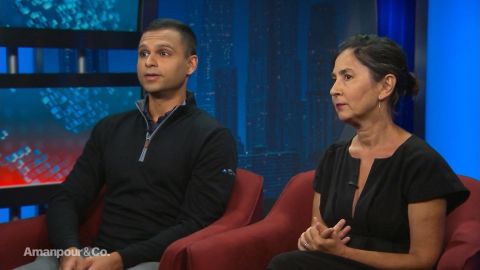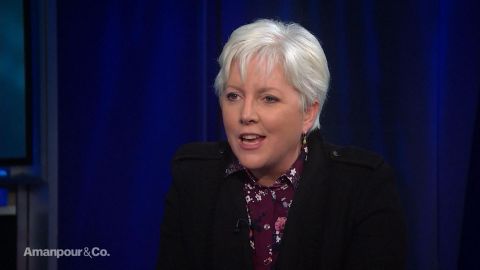Read Transcript EXPAND
CHRISTIANE AMANPOUR: Do you see it sort of as part and parcel of kind of similar struggle?
CARRIE GRACIE, AUTHOR, “EQUAL: A STORY OF WOMEN, MAN AND MONEY”: Definitely. I think that there are so many similarities. And I would say I and many others in the equal pay fight were inspired by everyone in the #MeToo fight. Two things to really hone in on, though, one is the silence breaking that caused #MeToo, obviously, the silence break showed enormous courage to defy their nondisclosure agreements and to call out some of the men involved. And that, also, plus the equal pay struggle. Because typically, what happens in this game is that if women are so difficult and determined and stubborn enough to actually fight all the way for equal pay, they will get closed down on the threshold of an employment tribunal, so it never goes public, and they will be forced to sign or they would feel forced to sign a nondisclosure agreement or some form of confidentiality agreement. And that way, the general public and the rest of the work force in that workplace never know the facts of life and women are at risk without knowing it. So, that’s one thing. The signage breaking is one thing. And the other thing is the patent building. Because I felt with this — I don’t know what you thought, but with #MeToo, I thought it was incredible to see all these women in workplaces, big and small, women at the bottom of the pay scale, women at the top of the pay scale, countries all over the world, basically having almost identical experiences. And it gave women an opportunity to see this is not a problem about me and my failure to stand up for myself or my failure to call the roles or my failure to deal with this particular situation. This is a pattern of behavior that many women are vulnerable to. And that’s also what I’d say about equal pay. I think women are incredible vulnerable to equal pay for reasons we’ll probably discuss in a moment. But I think seeing the patent is critical to understanding what we can do about it.
AMANPOUR: So, seeing the pattern you have to start, you know, pulling the threads. So, let’s start with yours. You, in 2017, basically went public once you discovered that, in fact, you were being paid less than half of what others of equal status, who happened to be men, were being paid. Just describe what was your aha moment. How did that — how did you discover it?
GRACIE: So, there was a very unpleasant shock which was received by a number of senior BBC women at the same moment, on the 19th of July, 2017, when the BBC was force the by the government, which is fed up of the BBC paying senior managers and stars a lot of money without any explanation of how much or why or whatever, and these were years of austerity, obviously, in the U.K. Economically, a lot of people in this country average income under 30,000 pounds. Huge pay packets going out to senior people at the BBC and the government was getting fed up of it. And so, it insisted that anyone who is earning more than the prime minister, their pay was going to be disclosed. And so, the pay was disclosed that summer in bands of 50,000 pounds. And I discovered that my male peer was earning between 200,000 pounds and 250,000 pounds
About This Episode EXPAND
Journalists Jodi Kantor and Megan Twohey join Christiane Amanpour to explain their work exposing Hollywood heavyweight producer Harvey Weinstein. Carrie Gracie joins the program to explain how women in the workplace can stand up for their right to equal pay. Amy Schatz and Taresh Batra sit down with Hari Sreenivasan to discuss the new HBO documentary “In the Shadow of the Towers.”
LEARN MORE


